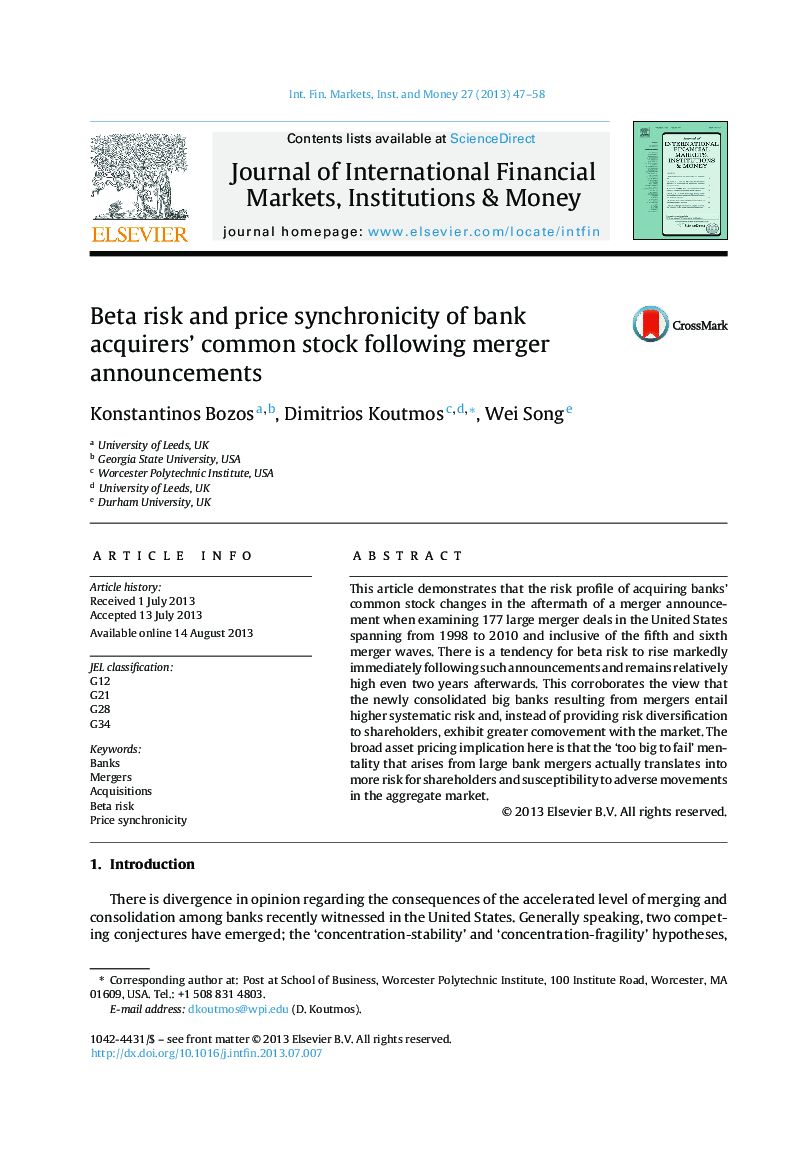| Article ID | Journal | Published Year | Pages | File Type |
|---|---|---|---|---|
| 964022 | Journal of International Financial Markets, Institutions and Money | 2013 | 12 Pages |
•This article's objectives parallel the debate over whether banks are becoming ‘too big to fail’.•The risk profile of acquiring banks’ common stock changes in the aftermath of a merger announcement.•Acquiring banks’ time-varying beta rises in the aftermath of a merger announcement.•Acquiring banks experience more comovement with the market one and two years after the announcement.
This article demonstrates that the risk profile of acquiring banks’ common stock changes in the aftermath of a merger announcement when examining 177 large merger deals in the United States spanning from 1998 to 2010 and inclusive of the fifth and sixth merger waves. There is a tendency for beta risk to rise markedly immediately following such announcements and remains relatively high even two years afterwards. This corroborates the view that the newly consolidated big banks resulting from mergers entail higher systematic risk and, instead of providing risk diversification to shareholders, exhibit greater comovement with the market. The broad asset pricing implication here is that the ‘too big to fail’ mentality that arises from large bank mergers actually translates into more risk for shareholders and susceptibility to adverse movements in the aggregate market.
